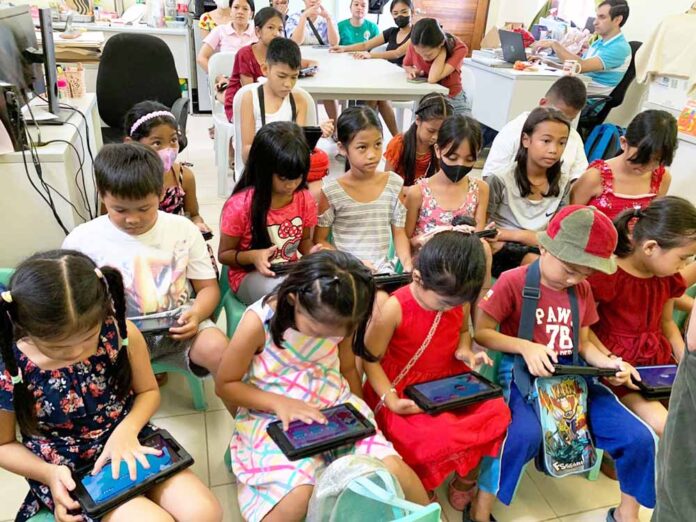AT least 5,168 Filipino students received educational materials, tools, and teaching sessions since the start of Angat Buhay Foundation’s education program recently, according to a statement released ahead of the first anniversary of the non-government organization (NGO) established by former Vice President Atty. Leni Robredo.
The NGO, with the help of local implementing partners, has established 137 learning facilities nationwide called community learning hubs or CLH that house equipment and learning tools for students, including trained teaching volunteers. Learners go through a program that targets their skills in reading and math in specialized ‘Angat Basa’ and ‘Angat Bilang’ centers.
“The Community Learning Hubs are our response to the country’s learning crisis,” said Magno. World Bank data released last year revealed that learning poverty among Filipino learners is at 90.9%. Learning poverty is the inability to read or understand a simple text or story at age 10.
The country also ranked second to worst in Southeast Asia for Grade 5 students’ reading and math skills, according to the Southeast Asia Primary Learning Metrics 2019.
“Improving literacy and numeracy of Filipino students needs community-based involvement,” said Magno. “We enjoined the assistance of education experts and stakeholders in designing the modules, training, and evaluation system. In our monitoring, all hubs improve learners’ literacy while 95% of students improved in their numeracy from pre-test to post-test,” he added.
The said hubs target numeracy-challenged students and non-readers and deployed 900 teaching volunteers. Currently, at least 4,800 learners are under the active CLH sites.
CLH sites can be found in Metro Manila and geographically isolated and distant areas in 30 provinces including Tarlac, Catanduanes, Guimaras, Bohol, Sultan Kudarat, and Zamboanga Sibugay, among others.
Angat Buhay dormitories and classrooms
Aside from CLH sites, Angat Buhay and its partners also established dormitories in Infanta, Quezon, and Camarines Norte and classrooms in Camarines Sur and Maasin, Iloilo.
“This is the power of Bayanihan from the private sector, community partners, and volunteers,” Magno said. “Truly, it takes a community to raise a child. Nagsisimula pa lang tayo at marami pa tayong gagawin (We are just getting started and we are going to do more),” he added. (UnliNews Online)


